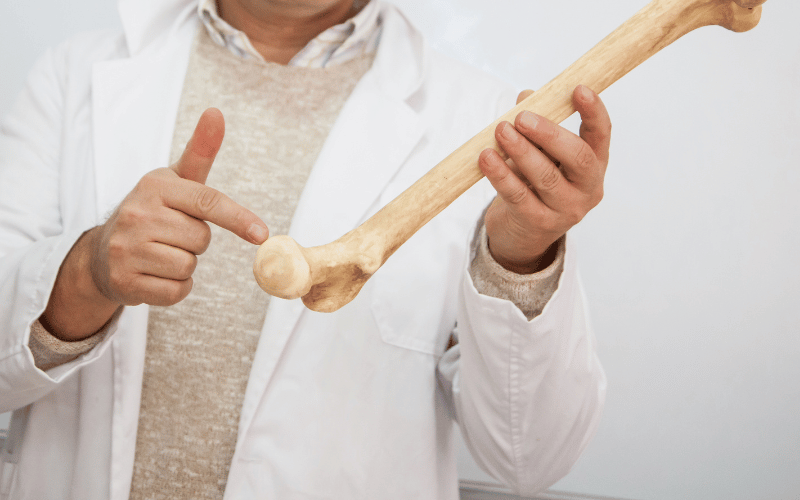4. Weak and Brittle Bones: The Underestimated Impact of Copper on Bone Health

Most people, when thinking about bone health, gravitate towards calcium and vitamin D. Yet, copper is a silent guardian of our skeletal system.
Its role in collagen formation is not limited to the skin. Collagen is a primary component of bones, providing them with flexibility and preventing them from becoming too brittle.
Copper deficiency doesn’t immediately manifest in bone issues. Bones don’t ache or show visible signs when their density starts decreasing. But over time, as copper levels remain suboptimal, bones lose their strength, becoming prone to fractures even with minor trauma.
One significant risk is the onset of osteoporosis, a condition where bones become so porous and weak that even a sneeze could cause a fracture. The association between osteoporosis and copper might not be immediately evident, but given copper’s role in bone mineralization, its deficiency undeniably accelerates bone health decline.
The skeletal implications of copper deficiency are profound. Maintaining bone health is not just about the big players like calcium or vitamin D. Copper, though trace, is equally vital. Recognizing its importance is the first step to preventing debilitating bone conditions. (4)